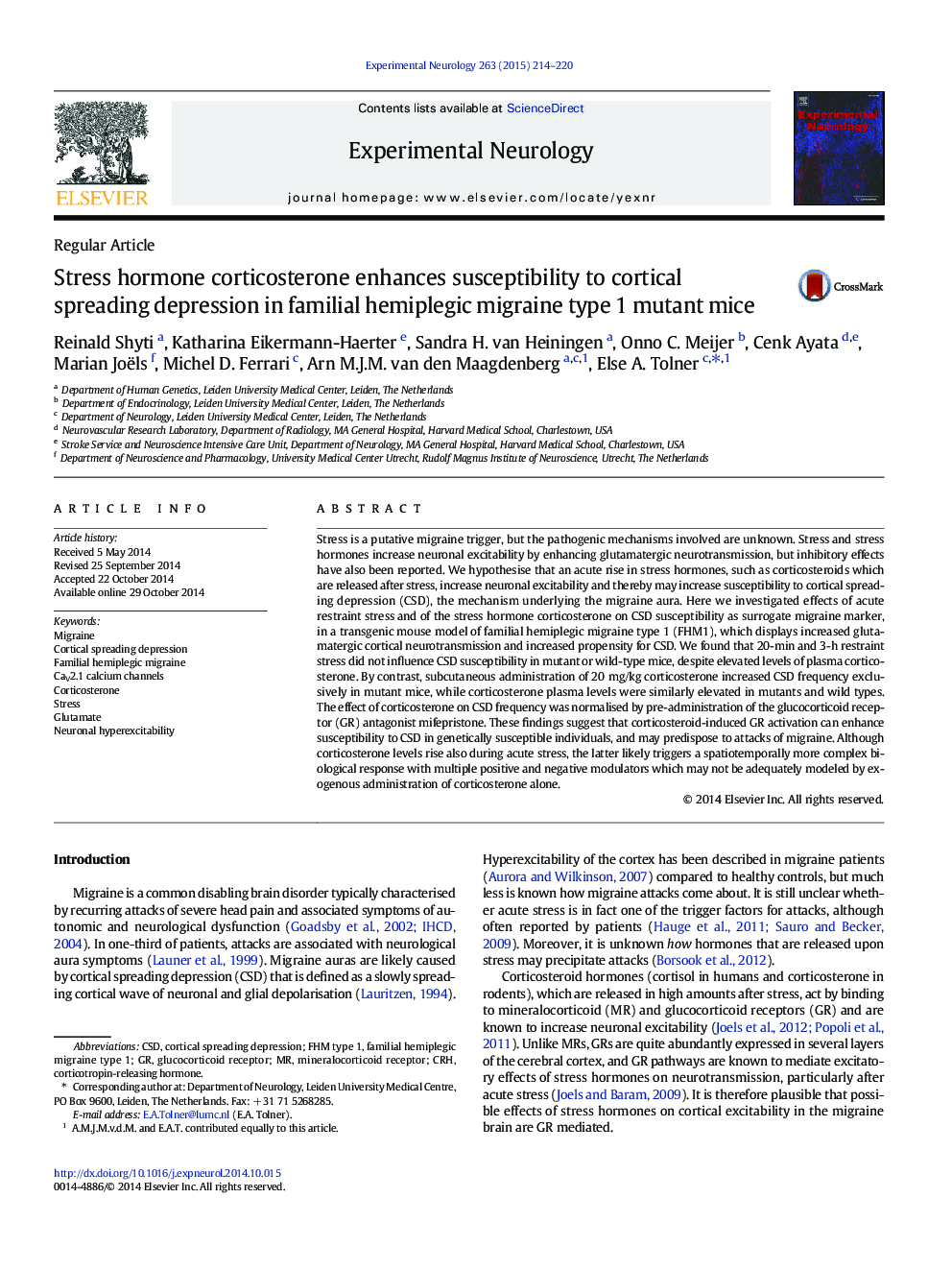| کد مقاله | کد نشریه | سال انتشار | مقاله انگلیسی | نسخه تمام متن |
|---|---|---|---|---|
| 6017529 | 1580170 | 2015 | 7 صفحه PDF | دانلود رایگان |
- Effects of acute stress and corticosterone on CSD susceptibility were studied in FHM1 R192Q and WT mice.
- Restraint stress did not influence CSD susceptibility in either mouse strain despite elevated plasma corticosterone levels.
- Corticosterone administration increased CSD susceptibility exclusively in FHM1 R192Q mice.
- The corticosterone effect on CSD was mediated by glucocorticoid receptor activation.
- Upon restraint stress, various stress mediators may be involved with diverse effects on CSD.
Stress is a putative migraine trigger, but the pathogenic mechanisms involved are unknown. Stress and stress hormones increase neuronal excitability by enhancing glutamatergic neurotransmission, but inhibitory effects have also been reported. We hypothesise that an acute rise in stress hormones, such as corticosteroids which are released after stress, increase neuronal excitability and thereby may increase susceptibility to cortical spreading depression (CSD), the mechanism underlying the migraine aura. Here we investigated effects of acute restraint stress and of the stress hormone corticosterone on CSD susceptibility as surrogate migraine marker, in a transgenic mouse model of familial hemiplegic migraine type 1 (FHM1), which displays increased glutamatergic cortical neurotransmission and increased propensity for CSD. We found that 20-min and 3-h restraint stress did not influence CSD susceptibility in mutant or wild-type mice, despite elevated levels of plasma corticosterone. By contrast, subcutaneous administration of 20Â mg/kg corticosterone increased CSD frequency exclusively in mutant mice, while corticosterone plasma levels were similarly elevated in mutants and wild types. The effect of corticosterone on CSD frequency was normalised by pre-administration of the glucocorticoid receptor (GR) antagonist mifepristone. These findings suggest that corticosteroid-induced GR activation can enhance susceptibility to CSD in genetically susceptible individuals, and may predispose to attacks of migraine. Although corticosterone levels rise also during acute stress, the latter likely triggers a spatiotemporally more complex biological response with multiple positive and negative modulators which may not be adequately modeled by exogenous administration of corticosterone alone.
Journal: Experimental Neurology - Volume 263, January 2015, Pages 214-220
